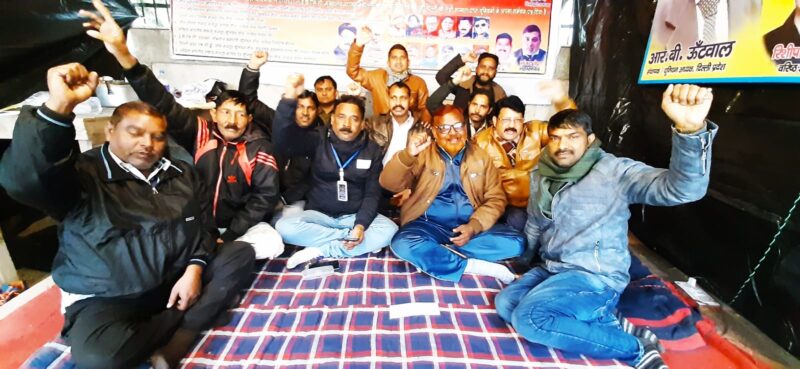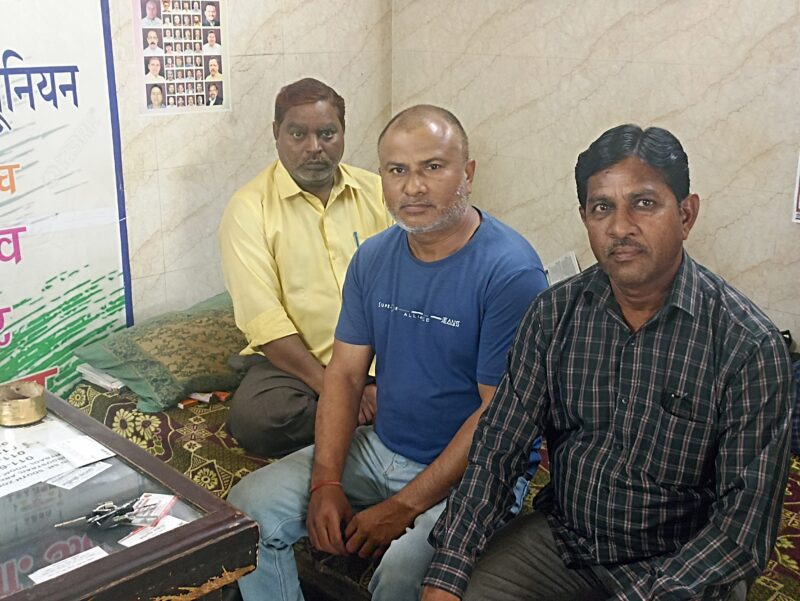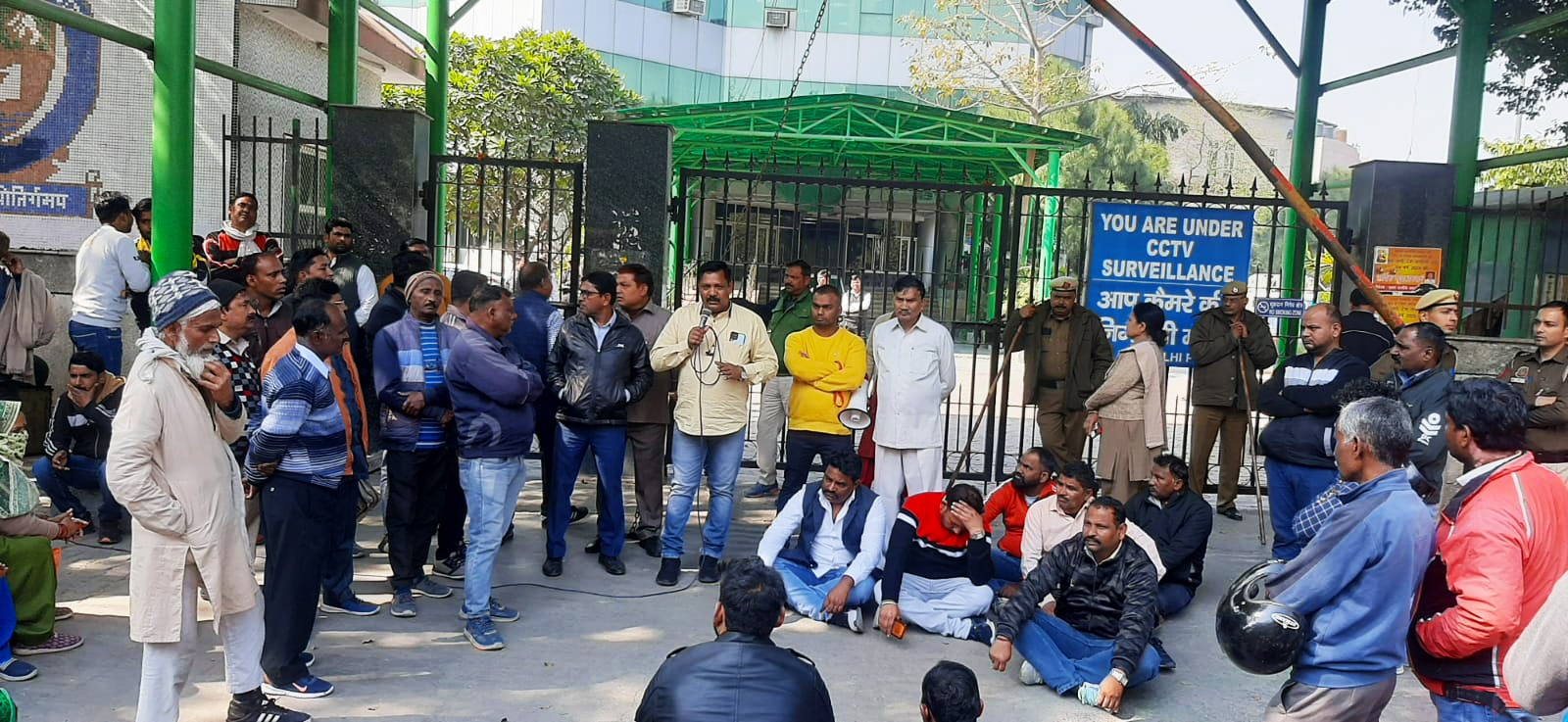Sanitation workers are a significant component of society, and they play an important role in ensuring that the community runs smoothly, in conjunction with other workforces.
Their efforts are needed for maintaining a clean environment and preserving our health, yet their situation is distressing. This is because the Municipal Corporation of Delhi (MCD) staff members have not received their pay for the last two months, and unfortunately, there appears to be little possibility of the outstanding payments being made this month since the time for salary distribution has already elapsed.
The Delhi Government approved the release of the first instalment of Rs 773 crores on May 1 to clear pending dues, salary, and pensions for retired employees. However, no salary updates have been provided to sanitation workers, according to RB Uthwal, founder of MCD Swachchata Karamchari Union.
“We are awaiting our salaries for the last two months, March and April, and the salary clearance window is also from 1 to 7 of every month, and that has also passed, so it looks like the workers will have to wait for this month as well. If things keep going like this, then how are we going to survive? The way the situation is right now, it feels like we’ll have to protest for our basic rights again,” he told Patriot during the day on May 7. In addition to the unpaid salary, Uthwal asserts that the allowances and bonuses have remained unsettled for years.
“Furthermore, for the past two decades, our department has been the only one without a standard uniform. Many of our employees who have worked for the past fifteen years have not been assigned permanent positions and are ineligible for essential government benefits.”
Struggling to make living
In an interview with Patriot, Sanjay Sood, a 46-year-old Safai Karamchari, shared his experience about how the last two months have been excruciating for his family. Sood states, “I have a family of six, including my 80-year-old paralysed mother who requires uninterrupted medication. How are we supposed to manage without receiving our salary? Doctors and shopkeepers may assist us for a brief period, but not for two to three months. There have been instances where we have gotten into confrontations with moneylenders. Sanitation workers are already in a distressing situation, and the delay in salary, which is their sole source of income, only compounds their problems.”
He further adds that he has an outstanding amount of Rs. 17,000 for medicines, which needs to be paid in monthly instalments.
“My cheques bounce every month, resulting in additional penalty charges, and the interest on other loans also keeps accumulating. Even if we receive our salaries regularly, we would be left with very little money for our future. With regular payment delays like this, we are left with nothing. What irritates the workers even more is that when existing problems are not resolved, there is no point in proposing new plans, such as handing over the MCD to PWD or investing in machines. The workers will work with dedication and hard work if they are paid on time, which is not possible right now,” says Sood.
Gyanchand 51, another sanitation worker who’s been working since the last sixteen years tells Patriot, “Even after dedicating sixteen years of my life, if I have to go on protests for my basic rights like salary, then all this time and work feels like regret. We work really hard to keep the city clean, day and night but we’re neglected by the authorities, it takes eighteen years for us to get permanent. Before that our salary is minimal with no additional benefits, so there’s no scope for improvement.”
He adds, “My mother is 76 years old and suffers from ischemic stroke (a blockage in her head), to which the doctor has said that it’s risky to perform a surgery at this age and it’s better to keep her on medications. But how am I supposed to do that if I don’t get my salary on time, and there are no other significant benefits as well which can help. We’re troubled beyond limits.
“We believed that the unification of the municipal corporations would solve our problems and issues like these won’t occur on a regular basis. But that’s not the case. Things only seem to be going downhill.”
Transfer to PWD
Another point of contention is the anticipated transfer of duties from MCD to PWD.
Even before it is submitted to the house, a plan to shift the daily cleaning of roads wider than 60 feet — a 1,400-kilometre network — from the Municipal Corporation of Delhi (MCD) to the Public Works Department (PWD), has sparked tensions between the Aam Aadmi Party (AAP) and the Bharatiya Janata Party (BJP). The plan, however, has not yet been approved and will be presented to the Delhi LG VK Saxena.

The workers, however, are unsure of this move.
Rajesh Kumar, 53, believes that there is a possibility that when handed over to the PWD, a lot of temporary workers might lose their jobs.
Kumar asks, “Who solves our current problems when we’re handed over to PWD? We haven’t received our salaries for the last two months. We used to get 6,900 rupees as Diwali bonus every year. We haven’t received a bonus since the last four years; there is no daily allowance and no health benefits.
“It’ll be better if these problems are resolved first before other plans are implemented,” he adds. RB Uthwal questions the intention behind this move and the need for it.
“We are working fine here. Who knows what will happen next? The main question is: why is there a need? You have the government; you have the MCD under your control; can’t the administration get the work done on their own? What if PWD hires private contractors for the job? What are we going to do then? Is there any written assurance that our jobs won’t be snatched up in this whole drama? There are already a lot of people working in PWD. If MCD also merges with them what will happen to existing employees?”
There’s no clear policy or update regarding the handover which is frightening, Uthwal concludes.
Job uncertainty, lazy administration
Pramod Chuniyana, another MCD worker, is scared that he might lose his job as there is no written proof for his employment.
“I’ve been working for the last fifteen years, and till now I’m not a permanent employee. Mai to kaccha sevak hu (I am a temporary worker),” Chuniyana adds. When asked whether there was any documentation or contract given to him at the start of his job, Chuniyana says there was no formal joining.
“What happens here is that the contractor will select some people and ask them if they’ll work on a daily basis. That’s how the journey starts for most of the people in this field of work. After working for 17 or 18 years, you can get permanent. By then, you are not young anymore. What can one do in the remaining 14 to 15 years? I don’t understand how the process works,” says Chuniyana.
“In the pandemic, when the world was suffering, we got the payments on time. I mean, one would have understood if there was a delay back then, but now that everything’s back to normal, it’s really hard to understand the reason behind the delay.”
Chuniyana believes the administration is at fault for this situation.

“We are already knee-deep in loans. I have a 21-year-old daughter. I have to save every penny so that I can get her married. If there are regular delays, how are we going to manage?”
A report shared by the MCD in 2022 stated that there are 66,500 workers employed by the MCD, out of which 36,000 are regulated — 17,000 in the North Delhi Municipal Corporation (NDMC), 7,000 in the East Delhi Municipal Corporation (EDMC), and 12,000 permanent workers in the South Delhi Municipal Corporation (SDMC).
The remaining 30,500 are temporary workers: 15000 in the NDMC, 7000 in EDMC, and 8,500 in the SDMC. Patriot tried contacting MCD officials, but multiple calls were unanswered.





